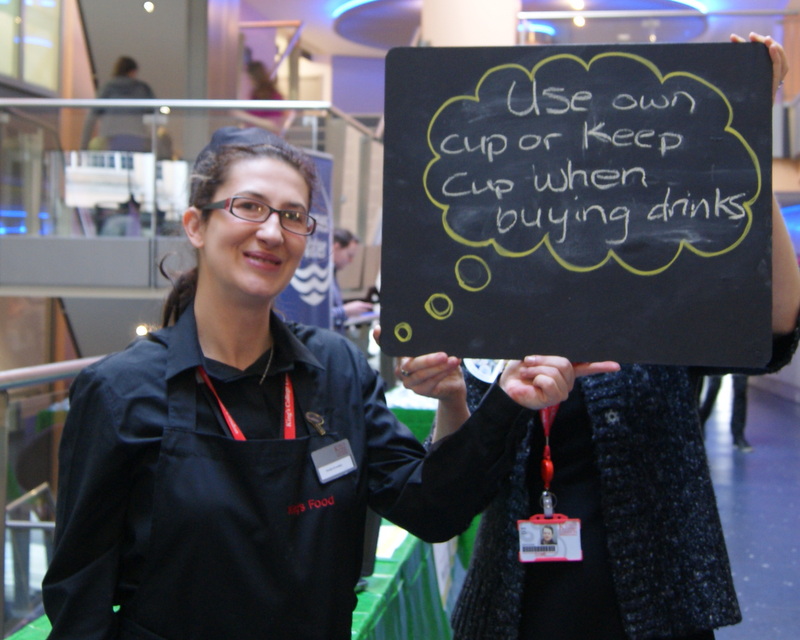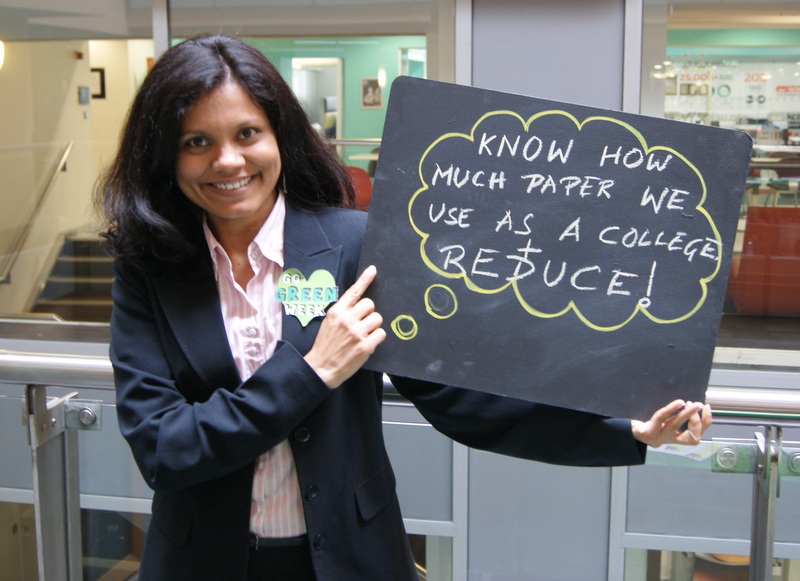Hi everyone,
Over the past few months my colleague Kiran and I have been doing research on education for sustainable development (ESD) for Karen O’Brien, our Vice-Principal of Education. The goal of this research is to get a better understanding of how sustainability is currently understood and taught across the College. It’s been a very interesting journey so far and we have discussed sustainability with many departments at King’s. Here I would like to share some my initial findings with you.
So… what is ESD?
There are different approaches to education for sustainable development. Traditionally ESD has focused largely on environmental problems. In this philosophy environmental sustainability can be explained through science, and solutions need to come from human action and technological innovation. This idea doesn’t cover the more social, cultural or economic aspects of sustainability. A more common view in ESD nowadays is that our present knowledge may be inadequate to cope with future uncer

“ESD seeks to balance human and economic well-being with cultural traditions and respect for the earth’s natural resources.” (UNESCO)
tainties and risks. I like the broad definition by the Higher Education Agency (HEA): “Education that prepares people to cope with, manage and shape social, economic and ecological conditions characterised by change, uncertainty, risk and complexity.” (Future Fit Framework)
According to Vare and Scott, this means that learning needs to be more ‘open-ended’. If we understand ESD in this way, this means we no longer look for a specific desired end-state of learning. This way we can realise what they call ‘social learning’ and be more reflective on how we might live in the future. I find this approach sustainable in that it uses out-of-the-box ways of thinking to deal with this unknown future.
Continue reading

 Hi everyone, I’m Janne and I work with the Sustainability team as a Sustainability Projects Assistant. As I will be leaving the team soon off to a new job, I thought this would be a good time to share my experiences and reflect on working with the King’s Sustainability team.
Hi everyone, I’m Janne and I work with the Sustainability team as a Sustainability Projects Assistant. As I will be leaving the team soon off to a new job, I thought this would be a good time to share my experiences and reflect on working with the King’s Sustainability team.

 sustainable future – mission possible?’ The distinguished panel comprised of both internal and external speakers – Aaron Re’em, Senior Account Director from
sustainable future – mission possible?’ The distinguished panel comprised of both internal and external speakers – Aaron Re’em, Senior Account Director from 



